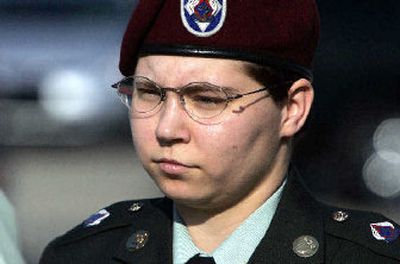England will plead not guilty

FORT HOOD, Texas – Attorneys for Lynndie England, the Army private who appeared in iconic photos of inmate abuse at Iraq’s Abu Ghraib prison, said Thursday that she will plead not guilty when the Army reopens her court-martial later this summer on charges of mistreating Iraqi prisoners.
Earlier this year, the 22-year-old had agreed to plead guilty to several charges in return for reduced prison time. But an Army judge threw out her plea in May, saying the confession she had worked out with Army prosecutors was not believable.
The Army has since filed a new case against England, including most but not all of the charges she faced before. The announcement Thursday that she intends to fight the charges in court means her court-martial – to be held here in August or September – could be the most dramatic legal case spawned by the Abu Ghraib scandal.
England could still negotiate a new plea bargain with prosecutors. But that seems unlikely, because the presiding judge at her court-martial will be Army Col. James L. Pohl, the man who threw out England’s earlier guilty plea. At a preliminary hearing Thursday, Pohl rejected a defense motion that he turn the case over to another judge.
Pohl ruled in May that England’s guilty plea was invalid because he found evidence that she felt she was following orders of her superiors when she posed in photos with naked prisoners. That belief constitutes a valid defense to the charges, the judge said, and so a guilty plea was not permitted under military law.
The abuse at Abu Ghraib became public in the spring of last year with the release of scores of photographs that showed Iraqi prisoners, some of them naked, hooded and shackled, being taunted and harassed by England and other U.S. soldiers. The graphic pictures prompted denunciation of the U.S. Army around the world.
Pentagon reports blamed Army commanders at the prison as well as senior commanders in Iraq for Abu Ghraib scandal.
In the criminal courts, though, the Army has prosecuted only junior enlisted soldiers. No officers at the prison, and no one in the overall chain of command, has faced criminal charges in the case; some officers were given reprimands.